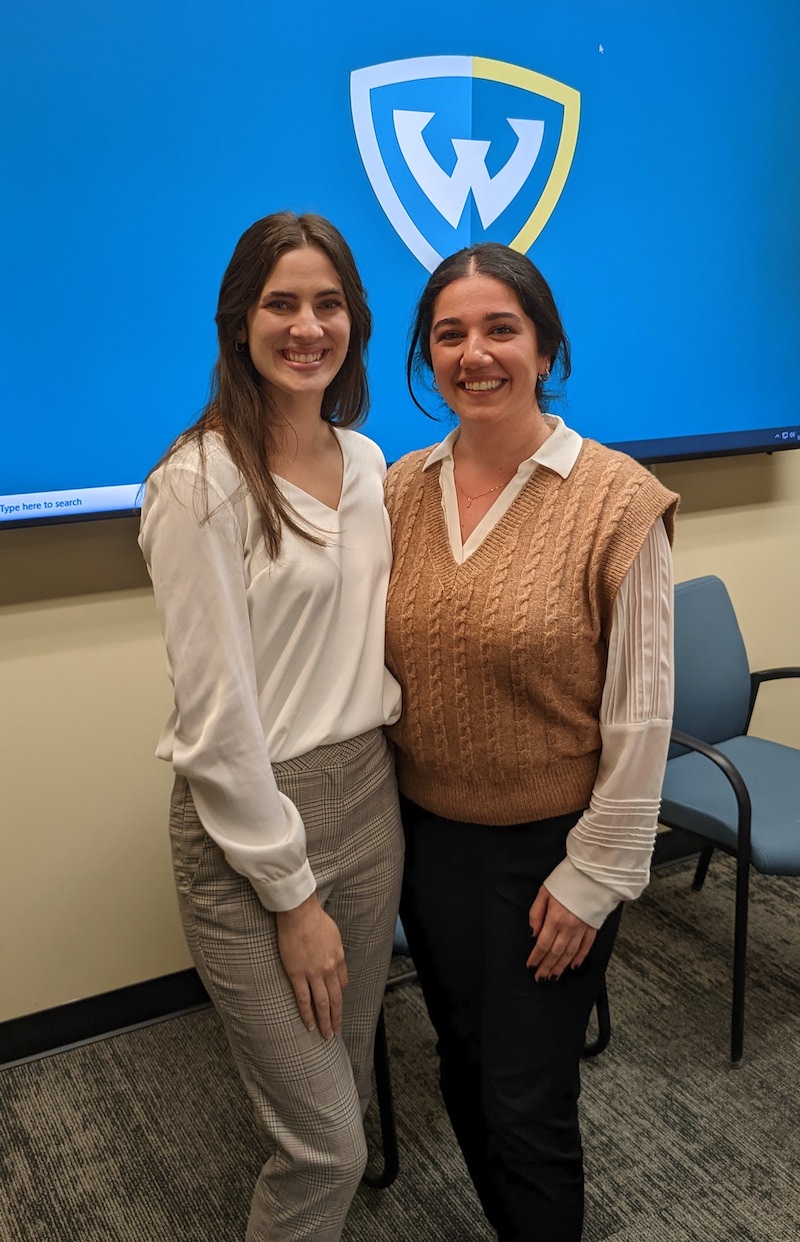Kelly Kepley, Jewel Konja to represent WSU in state, national ASHP Clinical Skills Competition
 On Wednesday, Oct. 19, 2022, the Wayne State Doctor of Pharmacy program held its annual clinical skills competition. The top-scoring team of Kelly Kepley and Jewel Konja will represent WSU Applebaum in the American Society of Health-System Pharmacists (ASHP) National Clinical Skills Competition in December, as well as the state competition on Oct. 28.
On Wednesday, Oct. 19, 2022, the Wayne State Doctor of Pharmacy program held its annual clinical skills competition. The top-scoring team of Kelly Kepley and Jewel Konja will represent WSU Applebaum in the American Society of Health-System Pharmacists (ASHP) National Clinical Skills Competition in December, as well as the state competition on Oct. 28.
In addition to Kepley and Konja, five other student teams competed:
Faculty judges included Associate Clinical Professor Dennis Parker, Clinical Professor Maureen Smythe and Assistant Clinical Professor Michael Veve, who all provided thoughtful, diligent reviews of each team's written and oral presentations.
Good luck to Kelly and Jewel!
The Doctor of Pharmacy program at Wayne State University is a four-year curriculum in the heart of Detroit. Approximately 100 students are enrolled in each year of the program. WSU Applebaum information meetings for prospective students take place at 6 p.m. on the first Tuesday of each month. The application process for the Doctor of Pharmacy program begins each July.
An anchor in urban health care
The Eugene Applebaum College of Pharmacy and Health Sciences is built on more than 100 years of tradition and innovation in the heart of Detroit. We have grown deep roots in our city, harnessing its powerhouse hospital systems and community service organizations as vibrant, real-world training grounds for students, with an ongoing focus on social justice in health care. And our research at all levels - from undergraduates to veteran faculty members - translates into creative solutions for healthier communities.
Wayne State University is a premier urban research institution offering approximately 350 academic programs through 13 schools and colleges to more than 25,000 students.